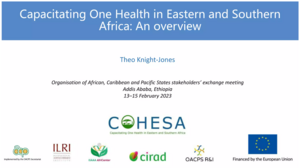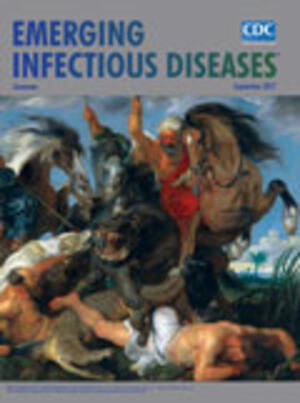
Applications of ecological niche modelling for mapping the risk of Rift Valley fever in Kenya
Abstract
Rift Valley Fever (RVF) is a viral zoonotic disease of economic importance caused by a virus of the Phlebovirus genus, Bunyaviridae family. The disease occurs cyclically between 5 to 15 years which is associated with El Nino/Southern Oscillation weather phenomenon. Various studies have been done to map RVF distribution using a variety of approaches including the use of disease occurrence maps, statistical models which uses presence and absence data such as logistic regression method, etc. However, acquiring correct absence data is not easy and hence maps generated from standard statistical models might not be a true representation of the disease distribution. In this study Ecological Niche Modeling was used to determine the distribution of RVF in Kenya using GARP algorithm which uses presence-only data. Occurrence of RVF data were obtained by geo-referencing all the known hotspots in the country based on historical data acquired from the Directorate of Veterinary Services (DVS). The environmental variables that were used as the input data included: land use, soil type, elevation, vegetation index acquired from MODIS satellite spanning from October 2006 to March 2007, rainfall and temperature for the same period of time as the satellite imagery. Of the sampled data 70% was used to train the model while 30% to test the model. The result mapped the actual distribution of RVF in Kenya with an AUC of 0.82. A model evaluation was done using Partial ROC which had a 1.77 indicating that the model predicted well. The results will be used to improve the already existing maps and for better planning of mitigation measures. It will also be used together with socio-economic variables to evaluate vulnerability indices in all the divisions across the country.
Citation
Kiunga, P.N., Kitala, P.M., Kipronoh, K.A., Mosomtai, G. and Bett, B. 2014. Applications of ecological niche modelling for mapping the risk of Rift Valley fever in Kenya. Presented at the 9th biennial Scientific Conference and Exhibition of the Faculty of Veterinary Medicine, University of Nairobi, 3-5 September 2014. Nairobi, Kenya: ILRI.










